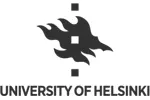We're moving! This site will be relocating to goingto.university in 2026. Please update your bookmarks to the new address.


| The award | How you will study | Study duration | Course start | Domestic course fees | International course fees |
|---|---|---|---|---|---|
| MSc | Full-time | 2 years | September | - | EUR 13000 per year |
Why do languages change? Why does your mobile device suggest funny completions for words you are typing? How did it happen that Finnish is spoken mostly in Finland, but its linguistic relatives are scattered over a larger area? How can you study a language that does not have a standard orthography? Why can you sometimes tell where other people come from just by their accent? Why do some people stick to their dialect, but others give it up when they move to the city? Should you try to support language diversity? Can we save languages that are spoken by a very small number of people? How can computer-synthesised speech be made to sound more human? Why do some languages seem so much more difficult to learn - are they inherently more complex?
This Master's programme will provide you with an understanding of the nature and diversity of human language and with the theoretical tools for working with language material. If you are interested in languages but are unable to decide which of them you want to study, this Master's programme offers several fields of specialisation. One of them might be just perfect for you.
Contact University of Helsinki to find course entry requirements.
Below are some suggested courses at other providers that you may also be interested in:
Laws (Paris) LLM, LLM, LLM, LLM
Centre for Commercial Law Studies, Queen Mary University of London
Find out moreAdvanced Bachelor of Bioinformatics Advanced Diploma, Bachelor Degree
Howest University of Applied Sciences
Find out moreCoastal Communities and Regional Development Master Degree
University Centre of the Westfjords
Find out moreFashion Human Resources & Management Master Degree
IIFM | Italian Institute of Fashion Management
Find out moreEnvironment and Resource Management - Environmental Studies Master Degree
Vrije Universiteit Amsterdam
Find out moreIf you do not meet the entry requirements for this course then consider one of these postgraduate preparation courses from another institution:
Graduate Diploma of Engineering (Safety, Risk and Reliability)
Engineering Institute of Technology
Find out moreThere are 34 other courses listed from University of Helsinki. A selection of these are displayed below:
Join the StudyLink email list and never miss a chance to turn your study abroad dreams into reality!
